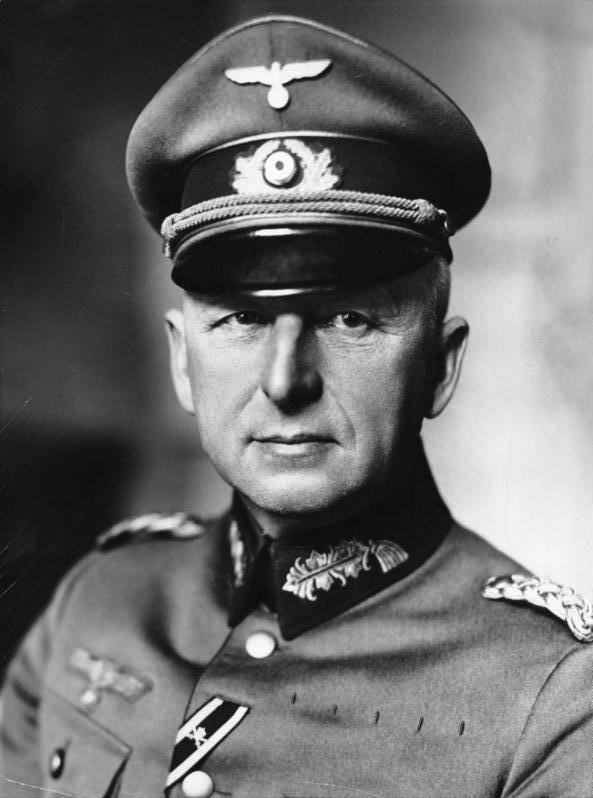Background of Operation Herkules
Jun 14, 2016 2:42:35 GMT
via mobile
Napoleon Bonaparte, Frederick the Great, and 1 more like this
Post by Desophaeus on Jun 14, 2016 2:42:35 GMT
No-plagiarism-warning: This will not be fully written in my own words, for the quoted materials I will carefully paste each borrowed portion into a quote bracket to show which portions were quoted or of my own writing.
I'm creating a presentation here on Operation Herkules for Napoleon Bonaparte's mini-TW 2 which can be found at:
european-war-4.boards.net/thread/2722/mini-operation-hercules-country-selection
What had happened here was
In a sad display of ineptitude, the Italian army had its hands full trying to battle the British, throwing good soldiers and equipment at them while they were being nearly pushed all the way back from Egypt to Benghanzi. The day after Benghanzi fell to the Allies (mostly British and Indian forces at that time) the Italian Tenth Army surrenders on Feb 7, 1941.
Further ineptitude was shown by the Italians in North Africa failing to recieve sufficient supplies and reinforcements due to the interference with the supply lines by the raids coming from the island base of Malta.
Despite the vital importance of taking Malta away from the British, the Italian navy left this idea to languish with limited interest, even while their German allies were rather furious with the ineptitude. The North Africa theater was taken up by the Germans after that point. Hilter appointed Rommel as the commander of the famous Afrika Korps panzers.
Almost a full year passed by and the German Afrika Korps were enjoying some successes and some failures all over the place between Libya and Egypt. In all of this, the firm convictions of the German officers stood firm on the subject of Malta. It wasn't until Hilter and Mussolini came together in a two-days meeting on April 29-30, 1942 and decided that it was time to do something about it. A date near mid-July 1942 was set for the invasion, partly to allow time to bring troops from other front line positions.
Daasewedfgfh
save
I'm creating a presentation here on Operation Herkules for Napoleon Bonaparte's mini-TW 2 which can be found at:
european-war-4.boards.net/thread/2722/mini-operation-hercules-country-selection
Operation Herkules was the German code-name given to a planned but never-executed Italo-German invasion of Malta during World War II (the Italian code-name was Operazione C3). Through combined air and sea landings, the Axis powers hoped to eliminate Malta as a British air and naval base and secure an uninterrupted flow of supplies across the Mediterranean Sea to their forces fighting in Libya and Egypt. Though extensive preparations were made by both German and Italian military forces, the rapidly changing war situation in North Africa resulted in the plan's cancellation in November 1942.
In a sad display of ineptitude, the Italian army had its hands full trying to battle the British, throwing good soldiers and equipment at them while they were being nearly pushed all the way back from Egypt to Benghanzi. The day after Benghanzi fell to the Allies (mostly British and Indian forces at that time) the Italian Tenth Army surrenders on Feb 7, 1941.
Further ineptitude was shown by the Italians in North Africa failing to recieve sufficient supplies and reinforcements due to the interference with the supply lines by the raids coming from the island base of Malta.
Despite the vital importance of taking Malta away from the British, the Italian navy left this idea to languish with limited interest, even while their German allies were rather furious with the ineptitude. The North Africa theater was taken up by the Germans after that point. Hilter appointed Rommel as the commander of the famous Afrika Korps panzers.
Almost a full year passed by and the German Afrika Korps were enjoying some successes and some failures all over the place between Libya and Egypt. In all of this, the firm convictions of the German officers stood firm on the subject of Malta. It wasn't until Hilter and Mussolini came together in a two-days meeting on April 29-30, 1942 and decided that it was time to do something about it. A date near mid-July 1942 was set for the invasion, partly to allow time to bring troops from other front line positions.
Overall command of Herkules' airborne component was given to Generalmajor Kurt Student and his XI Fliegerkorps. Student had previously planned and executed the German airborne assault on Crete in April 1941. In contrast with the hasty planning necessary for that operation, Student now had months to prepare and he determined not to repeat the mistakes made previously on Crete. Knowledge of the enemy's defensive positions on Malta was extensive, thanks to meticulous aerial mapping by the Italians. Every fortification, artillery emplacement and AA battery was carefully noted and scrutinised. Student claimed later that "We even knew the calibre of the coastal guns, and how many degrees they could be turned inland."
Daasewedfgfh
Field Marshal Erwin Rommel supported the idea of seizing Malta, to the point that he personally asked Hitler to allow him to command the invasion forces. His reasons for supporting an invasion were to hinder the Allied troops fighting in Africa, as well as remove the threat to the convoys heading to Italian-German forces with supplies, oil, and men, of all which they was desperately low on. He put the emphasis on the attack to such an extreme that he was willing to move units from his front for the attack. The head of the German Luftwaffe, Hermann Göring, opposed the invasion, fearing it would turn into another near-disaster for his paratroops, as had happened on Crete.





